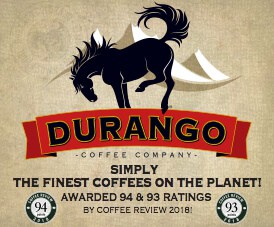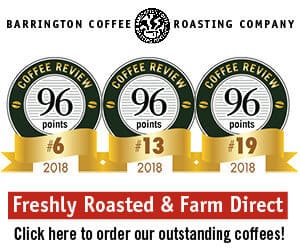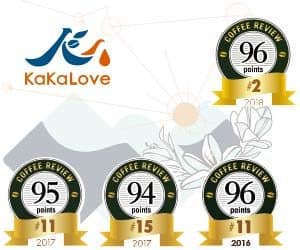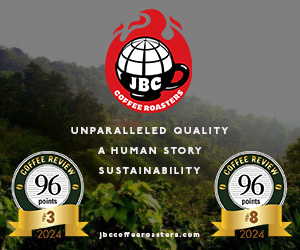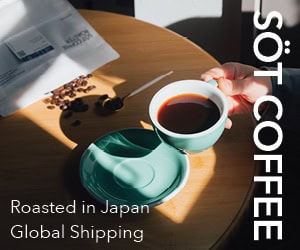Produced by smallholding members of the Murue Farmer's Cooperative, from trees of the SL-28, SL-34, Ruiru 11, Batian and K7 varieties of Arabica, and processed at the Ngrueri Coffee Factory by the washed method (fruit skin and pulp removed before drying). JBC Coffee Roasters’ vision is simple: “Let the coffee lead the way” through sourcing and roasting the best coffees available and rewarding the
SEARCH RESULTS
Cruz Loma Ecuador
Produced by Maria Alexandra Rivera and Galo Morales and their extended family at Finca Cruz Loma, entirely of the Sidra variety of Arabica, and processed by the washed method (fruit skin and pulp removed before drying). JBC Coffee Roasters’ vision is simple: “Let the coffee lead the way” through sourcing and roasting the best coffees available and rewarding the farmers who grow those coffees with
El Faldon Colombia
Produced by Arnulfo Leguizamo and his son Diego of Finca El Faldon, entirely of the Caturra variety of Arabica, and processed by the washed method (fruit skin and pulp removed before drying). JBC Coffee Roasters’ vision is simple: “Let the coffee lead the way” through sourcing and roasting the best coffees available and rewarding the farmers who grow those coffees with substantial premiums. Visit
Wilton Benitez SL28
Produced by Wilton Benitez of Finca La Macarena, entirely of the SL28 variety of Arabica, and processed by the thermal shock method, in which the coffee fruit, after having been first sanitized with ozone, undergoes two stages of fermentation. First, the whole cherries are submerged under water for 48 hours, then the beans are pulped and fermented in an anaerobic bioreactor with Saccharomyces
Kolla Bolcha #6 Ethiopia
Produced by smallholding farmers, entirely of local landrace varieties of Arabica, and processed by the washed method (fruit skin and pulp removed before drying). JBC Coffee Roasters’ vision is simple: “Let the coffee lead the way” through sourcing and roasting the best coffees available and rewarding the farmers who grow those coffees with substantial premiums. Visit www.jbccoffeeroasters.com or
Bener Meriah Sumatra
Produced by smallholding members of Central Sumatera Coffee (CSC), from trees of the Abyssinia and Typica varieties of Arabica, and processed by the traditional Sumatra washed and wet-hulled method. JBC Coffee Roasters’ vision is simple: “Let the coffee lead the way” through sourcing and roasting the best coffees available and rewarding the farmers who grow those coffees with substantial premiums.
Qunqana Ethiopia
Produced by smallholding farmers, entirely of local landrace varieties of Arabica, and processed by the honey method, in which some of the fruit flesh is left on the beans during the drying process. JBC Coffee Roasters’ vision is simple: “Let the coffee lead the way” through sourcing and roasting the best coffees available and rewarding the farmers who grow those coffees with substantial premiums.
Finca La Reserva Colombia Gesha Honey
Produced by Juan Felipe of Finca La Reserva, entirely of the Gesha variety of Arabica, and processed by the anaerobic honey method, in which some of the fruit flesh is left on the beans during the drying process, which, in this case, was preceded by a 96-hour fermentation in hermetically sealed vessels. JBC Coffee Roasters’ vision is simple: “Let the coffee lead the way” through sourcing and
Twisted V.9 Espresso
A blend of coffees from undisclosed South and Central America and Africa origins. JBC Coffee Roasters’ vision is simple: “let the coffee lead the way” through sourcing and roasting the best and most unique coffees available and rewarding the farmers who grow those coffees with substantial premiums. Visit www.jbccoffeeroasters.com or call 608-256-5282 for more information.
Bella Carmona Honey Guatemala
Produced by Luis Pedro Zelaya Zamora of Hacienda Carmona, from trees of the Bourbon and Caturra varieties of Arabica, and processed by the honey method, in which some of the fruit flesh is left on the beans during the drying process. JBC Coffee Roasters’ vision is simple: “Let the coffee lead the way” through sourcing and roasting the best and most unique coffees available and rewarding the
Acacia Hills Geisha
This exceptional coffee was selected as the No. 3 coffee on Coffee Review’s list of the Top 30 Coffees of 2024. Produced by Leon Christianakis of Acacia Hills Farm, entirely of the Geisha variety of Arabica, and processed by the traditional washed method (fruit skin and pulp removed before drying). JBC Coffee Roasters’ vision is simple: “Let the coffee lead the way” through sourcing and roasting
Nsoga Iweyza Tanzania
Produced by smallholding farmers, from trees of the Kent and N39 varieties of Arabica, and processed by the traditional washed method (fruit skin and pulp removed before drying). JBC Coffee Roasters’ vision is simple: “Let the coffee lead the way” through sourcing and roasting the best and most unique coffees available and rewarding the farmers who grow those coffees with substantial premiums.
Wilton Benitez Java
This exceptional coffee was selected as the No. 8 coffee on Coffee Review’s list of the Top 30 Coffees of 2024. Produced by Wilton Benitez of Granja Paraiso 92, entirely of the Java variety of Arabica, and processed by the double-anaerobic thermal shock method, in which the coffee fruit, after having been first sanitized with ozone, undergoes two stages of fermentation. First, the whole cherries
Asobombo Colombia
Produced by smallholding members of the Asobombo Cooperative, entirely of the Pink Bourbon variety of Arabica, and processed by the traditional washed method (fruit skin and pulp removed before drying). JBC Coffee Roasters’ vision is simple: “Let the coffee lead the way” through sourcing and roasting the best and most unique coffees available and rewarding the farmers who grow those coffees with
Alto Lagunillas by Wilson Sucaticona
Produced by Wilson Sucaticona, entirely of the Bourbon variety of Arabica, and processed by the traditional washed method (fruit skin and pulp removed before drying). JBC Coffee Roasters’ vision is simple: “Let the coffee lead the way” through sourcing and roasting the best and most unique coffees available and rewarding the farmers who grow those coffees with substantial premiums. Visit
Biru Bekele Ethiopia
Produced by smallholding farmers, from trees of local landrace varieties, and processed at the Biru Bekele Washing Station by the traditional washed method (fruit skin and pulp removed before drying). JBC Coffee Roasters’ vision is simple: “Let the coffee lead the way” through sourcing and roasting the best and most unique coffees available and rewarding the farmers who grow those coffees with
Finca La Secreta Colombia Lychee Co-Ferment
Produced by Juan Carlos Mejia of Finca La Secreta, entirely of the Caturra variety of Arabica, and processed by the anaerobic natural method (fermented in an oxygen-free environment), co-fermented with lychee, then dried in the whole fruit.. JBC Coffee Roasters’ vision is simple: “Let the coffee lead the way” through sourcing and roasting the best and most unique coffees available and rewarding
Nyeri Hill Kenya
Produced at Nyeri Hill Estate, from trees of the SL34, SL28 and Ruiru varieties of Arabica, and processed by the traditional washed method (fruit skin and pulp removed before drying). JBC Coffee Roasters’ vision is simple: “Let the coffee lead the way” through sourcing and roasting the best and most unique coffees available and rewarding the farmers who grow those coffees with substantial
Nemba Burundi
Produced by 1074 smallholding Farmers who work with Greenco Coffee, entirely of the Red Bourbon variety of Arabica, and processed by the traditional washed method (fruit skin and pulp removed before drying). JBC Coffee Roasters’ vision is simple: “Let the coffee lead the way” through sourcing and roasting the best and most unique coffees available and rewarding the farmers who grow those coffees
Wilton Benitez Orange Bourbon
Produced by Wilton Benitez of Granja Paraiso 92, entirely of the Orange Bourbon variety of Arabica, and processed by the double-anaerobic thermal shock method, in which the coffee fruit, after having been first sanitized with ozone, undergoes two stages of fermentation. First, the whole cherries are submerged under water for 48 hours, then the beans are pulped and fermented with a strain of


